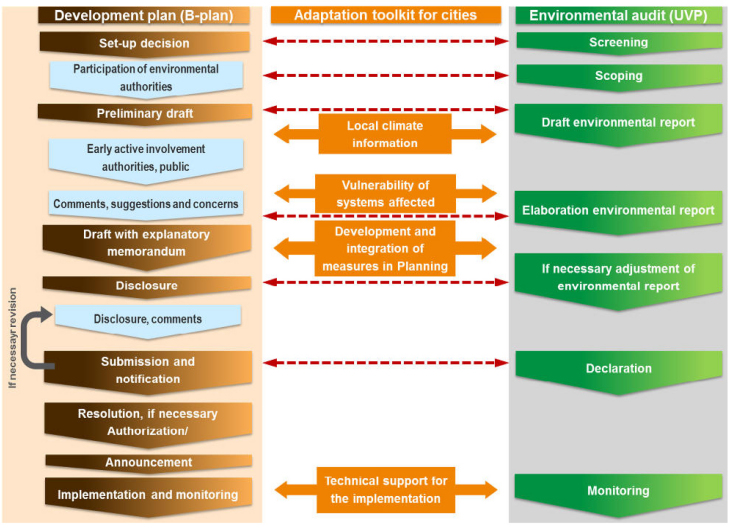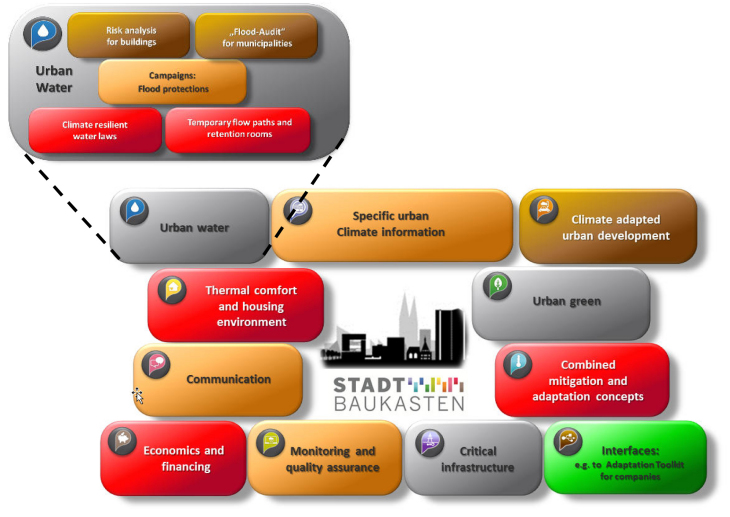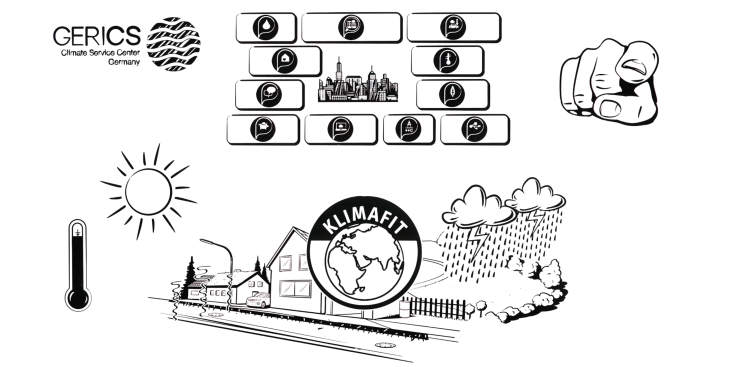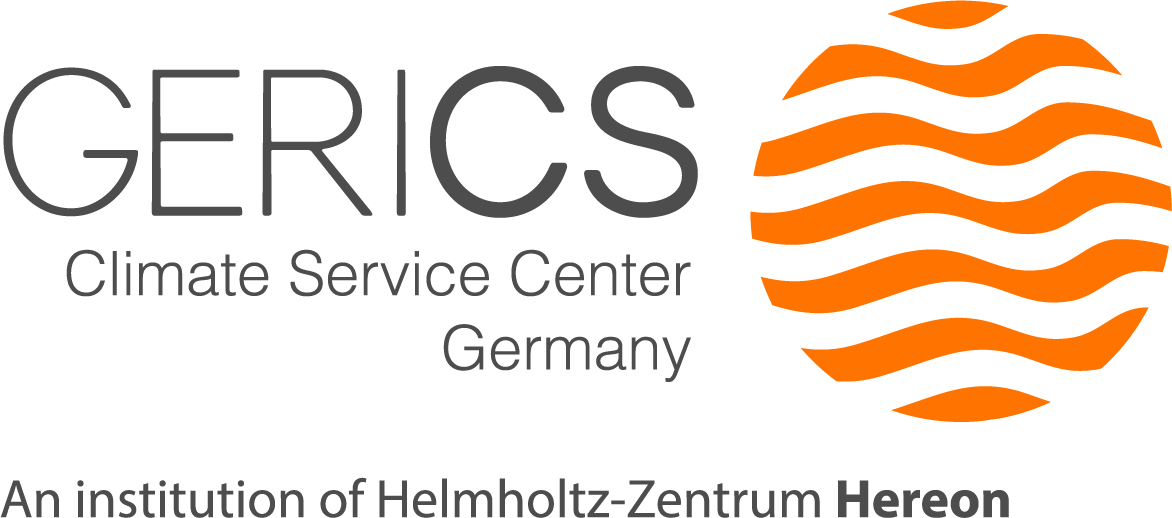GERICS Adaptation toolkit for cities (Stadtbaukasten)
– the individually applicable advisory service for sustainable adaptation to climate impacts
New challenges for cities and agglomerations
It is widely accepted that man has a decisive influence on the changes of global climate. The concentration of people, assets, critical infrastructure and economic activities in urban areas make cities highly vulnerable to climate change impacts, such as more frequent and intense heavy rain events and heatwaves or increasing mean temperature. These climate impacts cause considerable stress for the urban population and infrastructure. It is therefore necessary to adapt to local and regional projected climate change impacts at an early stage. These impacts need to be considered in planning and design processes to positively influence quality of life and the persistence of infrastructure in the future.
Beside mitigation and adaptation strategies, there are many other challenges for cities, such as rising settlement pressure or demographic change. Yet, even though other issues may appear more immediate and pressing in everyday business of cities and municipalities, it is important to answer the following questions:
- How operative and resource-friendly are cities and municipalities under the conditions of climate change?
- What are the opportunities and challenges arising from climate change for city administrations but also for the inhabitants?
Climate proof urban planning – individual advice for cities
Generally, mitigation and adaptation need to be considered jointly and equally for all solution. The cities toolkit’s main goal is the planning of adaptation measures and their integration into existing planning processes in order to avoid additional pressure for the increasingly scarce human and financial resources at city administrations (Fig.1).

Fig.1: Example for the integration of the adaptation toolkit for cities into the typical process chains for a development plan or an environmental audit.
This flexible structure allows to address each cities specific environmental and administrative framework. The development of practicable strategies or measures and their implementation is carried out in close cooperation with the contracting cities or municipalities.
The adaptation toolkit for cities provides in its standard configuration eleven module groups that cover the most important areas of activities of a city (Fig.2). Within each module group, there are one or more modules with specific priorities.

Fig 2.: Standard configuration of the adaptation toolkit for cities and a detailed view on the module group urban water and its modules
Video: Explaining the GERICS Adaptation Toolkit for Cities
Municipalities can use the modular adaptation toolkit for cities in cooperation with GERICS for individual application. It aims at supporting municipalities in the development and implementation of adaptation measures in order to cope with the impacts of climate change. The short film produced by explainity shows which areas of activity can be focused in cities and regions within the modules of the toolkit and how it is adapted in practice.
 Video: GERICS Adaptation Toolkit for Cities
Video: GERICS Adaptation Toolkit for Cities
